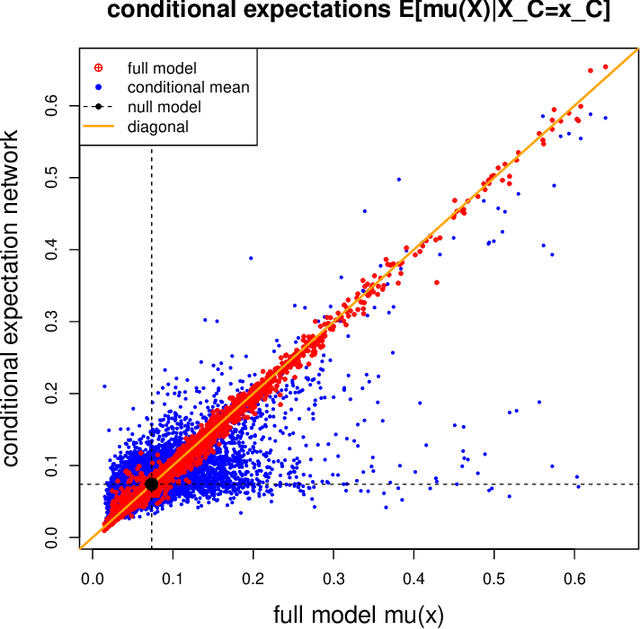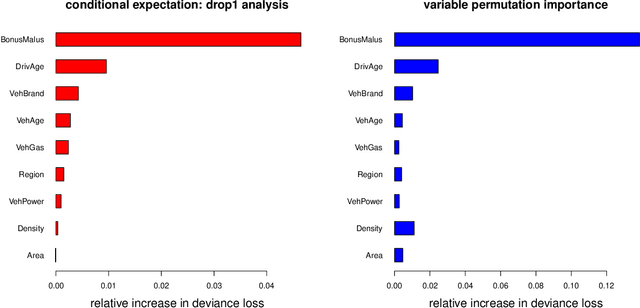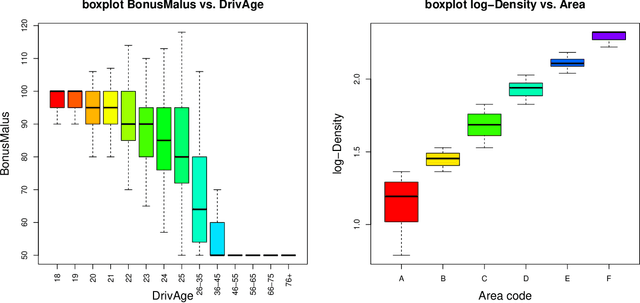Conditional expectation network for SHAP
Paper and Code
Jul 20, 2023



A very popular model-agnostic technique for explaining predictive models is the SHapley Additive exPlanation (SHAP). The two most popular versions of SHAP are a conditional expectation version and an unconditional expectation version (the latter is also known as interventional SHAP). Except for tree-based methods, usually the unconditional version is used (for computational reasons). We provide a (surrogate) neural network approach which allows us to efficiently calculate the conditional version for both neural networks and other regression models, and which properly considers the dependence structure in the feature components. This proposal is also useful to provide drop1 and anova analyses in complex regression models which are similar to their generalized linear model (GLM) counterparts, and we provide a partial dependence plot (PDP) counterpart that considers the right dependence structure in the feature components.
 Add to Chrome
Add to Chrome Add to Firefox
Add to Firefox Add to Edge
Add to Edge